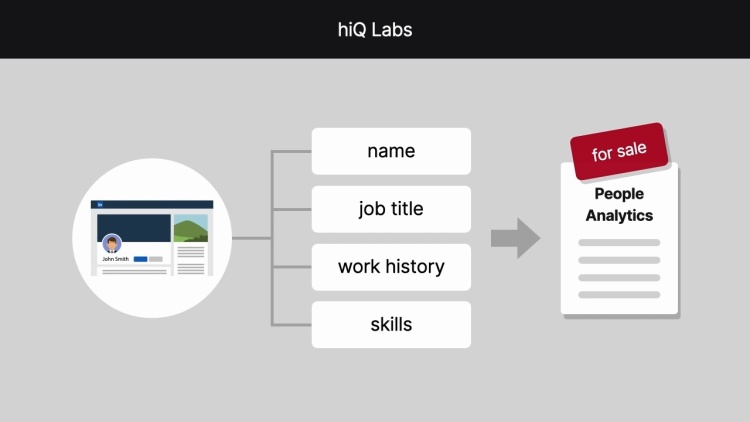hiQ Labs, Inc. v. LinkedIn Corp.
United States Court of Appeals for the Ninth Circuit
938 F.3d 985 (2019)
- Written by Rose VanHofwegen, JD
Facts
LinkedIn Corp. (defendant) operates a professional-networking website. Users upload data and job listings and build networks with their connections. LinkedIn specifically disclaims ownership of user-posted information. Instead, users own that information and give LinkedIn a nonexclusive license to use it. Members control whether their profiles are public. LinkedIn attempts to prevent misappropriation or misuse of the data with automated tools that prevent scraping, blocking about 95 million attempts to scrape data daily. Data-analytics company hiQ Labs, Inc. (plaintiff) uses automated bots to scrape information LinkedIn users include on public profiles. HiQ uses that information to yield so-called people analytics it sells to businesses. HiQ’s algorithms identify employees most likely to be recruited away so employers can offer retention bonuses to keep them, and they identify skill gaps employers may fill using internal training. LinkedIn sent hiQ a cease-and-desist letter demanding it stop scraping data from LinkedIn’s server. HiQ responded it had a right to access LinkedIn’s public pages and filed a tortious-interference lawsuit requesting an injunction and a declaration that LinkedIn could not invoke the Computer Fraud and Abuse Act (CFAA) or any other law to stop it. The district court granted an injunction and ordered LinkedIn to stop trying to block hiQ’s access. LinkedIn appealed.
Rule of Law
Issue
Holding and Reasoning (Berzon, J.)
What to do next…
Here's why 911,000 law students have relied on our case briefs:
- Written by law professors and practitioners, not other law students. 47,100 briefs, keyed to 997 casebooks. Top-notch customer support.
- The right amount of information, includes the facts, issues, rule of law, holding and reasoning, and any concurrences and dissents.
- Access in your classes, works on your mobile and tablet. Massive library of related video lessons and high quality multiple-choice questions.
- Easy to use, uniform format for every case brief. Written in plain English, not in legalese. Our briefs summarize and simplify; they don’t just repeat the court’s language.






